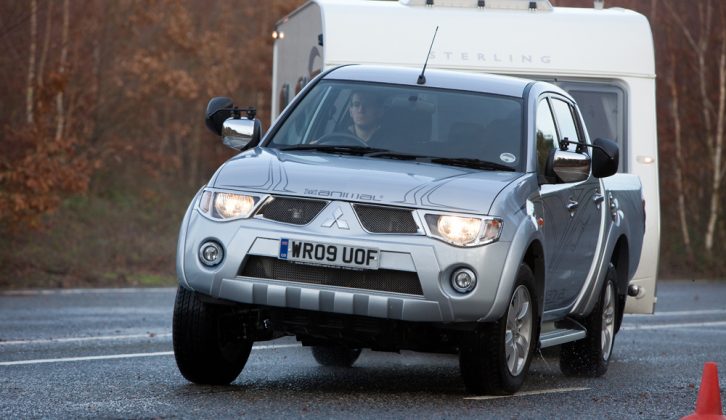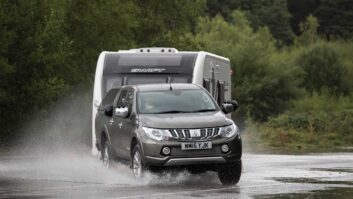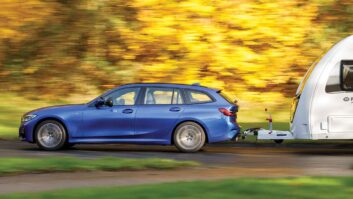From April 2010 issue
List price when tested: £25,144
Kerbweight: 1865kg
85% match: 1585kg
Max towing weight: 2700kg
Towball limit: 115kg
30-60mph: 14.4seconds
30-0mph: 11.7m
DOUBLE-CAB PICK-UPS like the Mitsubishi L200 have to hold down two jobs at the same time. During the working day they haul loads. Then at evenings and weekends they become family cars.
It’s tough to do both jobs well, and that does mean some compromises. Suspension designed to cope with a heavy loads (the L200 has a payload of over a tonne) feels uncomfortably bouncy without a lot of weight on the back. It’s especially noticeable with just the driver onboard, but the ride is none too comfortable with a caravan on the back, either.
In the lane-change test, the L200’s vague and slow steering did the driver no favours, and the caravan could be felt pushing and shoving at the back of the pick-up.
Respectable rather than quick
The Mitsubishi is happier towing in a straight line. The 2.5-litre does a dogged job of pulling car and caravan up to speed. We matched the L200 to a 2010 Sterling Eccles Coral, with a Mass in Running Order (MiRO) of 1491kg. It towed the Sterling from 30-60mph in 14.4 seconds. That’s respectable rather than quick, but then the L200 is more shire horse than thoroughbred.
Inside, the driving position would benefit from more adjustment (the wheel moves up and down but not in and out) and the finish feels durable rather than plush. There’s plenty of equipment included in the price, though, and there’s more legroom in the back than you’ll find in a Ford Ranger, for example.
The dual-purpose nature of the L200 does force some compromises, but it does have a certain rugged appeal.
We say
Towing: 3/5
Solo: 2/5
Practicality: 3/5
Buying & owning: 4/5
Verdict: 3/5 – A little rough and ready to drive, but capable.
Find out more about this car at www.whatcar.com
Technical Specifications
| Kerbweight | 1865 kg |
| 85% KW | 1585 kg |
| Towball Limit | 115 kg |
| Maximum Towing Limit | 2700 kg |
| Power | 165 bhp |
| Torque | 296 lb ft |
| Offical MPG | 32.8 mpg |
| CO₂ | 236 g/km |









